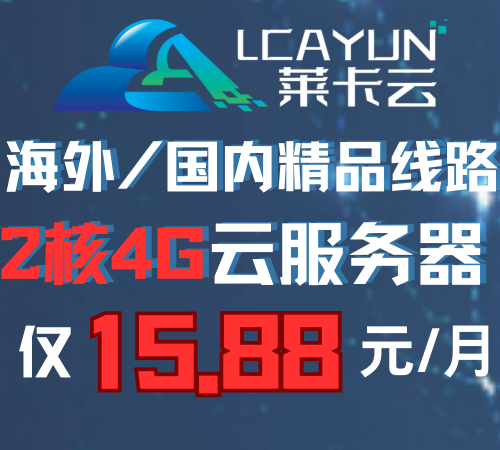本站提供Linux服务器运维,自动化脚本编写等服务,如有需要请联系博主微信:xiaozme
LayUI是由“贤心”开发的一款前端框架,使用简单、方便,和知名的BootStrap框架类似,目前xiaoz大多数开源项目正是使用的LayUI框架。但使用LayUI来开发WordPress主题的开发者比较少,所以也存在一些坑,就比如WordPress默认使用wp_nav_menu()函数来输出菜单结构,和LayUI的菜单结构不一致,导致样式非常错乱,在此记录下解决办法。

重写wp_nav_menu()函数
将下面的代码添加到主题目录下的functions.php文件中:
#-----------------------------------------------------------------#
# 修改wp_nav_menu的li标签
#-----------------------------------------------------------------#
class new_walker extends Walker_Nav_Menu{
//修改一级ul标签样式
function start_lvl( &$output, $depth = 0, $args = array() ){
if( $depth == 0 ){
$output .= '<ul class="layui-nav-child">';
}else{
$output .= '<ul class="layui-nav-child">';
}
}
function end_lvl( &$output, $depth = 0, $args = array() ){
if( $depth == 0 ){
$output .= "</ul>";
}else{
$output .= '</ul>';
}
}
function start_el( &$output, $item, $depth = 0, $args = array(), $id = 0 ) {
if ( isset( $args->item_spacing ) && 'discard' === $args->item_spacing ) {
$t = '';
$n = '';
} else {
$t = "\t";
$n = "\n";
}
$indent = ( $depth ) ? str_repeat( $t, $depth ) : '';
$classes = empty( $item->classes ) ? array() : (array) $item->classes;
$classes[] = 'menu-item-' . $item->ID;
$args = apply_filters( 'nav_menu_item_args', $args, $item, $depth );
$class_names = join( ' ', apply_filters( 'nav_menu_css_class', array_filter( $classes ), $item, $args, $depth ) );
if( $depth == 0 ){
$class_names .= ' layui-nav-item'; //增加Layui样式
}
if ( in_array( 'current-menu-item', $classes ) ){
$class_names .= ' layui-this'; //增加当前样式
}
$class_names = $class_names ? ' class="' . esc_attr( $class_names ) . '"' : '';
$id = apply_filters( 'nav_menu_item_id', 'menu-item-' . $item->ID, $item, $args, $depth );
$id = $id ? ' id="' . esc_attr( $id ) . '"' : '';
$output .= $indent . '<li' . $id . $class_names . '>';
$atts = array();
$atts['title'] = ! empty( $item->attr_title ) ? $item->attr_title : '';
$atts['target'] = ! empty( $item->target ) ? $item->target : '';
if ( '_blank' === $item->target && empty( $item->xfn ) ) {
$atts['rel'] = 'noopener noreferrer';
} else {
$atts['rel'] = $item->xfn;
}
$atts['href'] = ! empty( $item->url ) ? $item->url : '';
$atts['aria-current'] = $item->current ? 'page' : '';
$atts = apply_filters( 'nav_menu_link_attributes', $atts, $item, $args, $depth );
$attributes = '';
foreach ( $atts as $attr => $value ) {
if ( ! empty( $value ) ) {
$value = ( 'href' === $attr ) ? esc_url( $value ) : esc_attr( $value );
$attributes .= ' ' . $attr . '="' . $value . '"';
}
}
$title = apply_filters( 'the_title', $item->title, $item->ID );
$title = apply_filters( 'nav_menu_item_title', $title, $item, $args, $depth );
$item_output = $args->before;
$item_output .= '<a' . $attributes . '>';
$item_output .= $args->link_before . $title . $args->link_after;
$item_output .= '</a>';
$item_output .= $args->after;
$output .= apply_filters( 'walker_nav_menu_start_el', $item_output, $item, $depth, $args );
}
}前端调用
使用下方的代码即可调用菜单,并且生成的LayUI样式风格。
<?php
wp_nav_menu( array(
'theme_location' => '', //导航别名
'menu_class' => 'layui-nav', //引用layui-nav样式
'walker' => new new_walker(), //引用刚才的重构
));
?>上方theme_location参数为空,指的是默认调用第一个主菜单,但是如果您注册的菜单不是主菜单,导航栏可能无法显示,则需要修改为自己注册的菜单别名。比如:
<?php
wp_nav_menu( array(
'theme_location' => 'header-menu', //导航别名
'menu_class' => 'layui-nav', //引用layui-nav样式
'walker' => new new_walker(), //引用刚才的重构
));
?>其中header-menu就是您自己注册的菜单别名
此文部分内容参考了:wordpress输出LayUI的菜单结构









